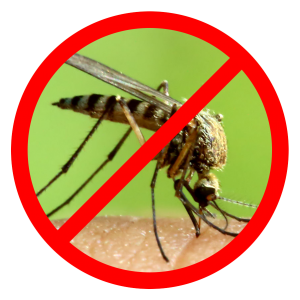Japanese Beetles
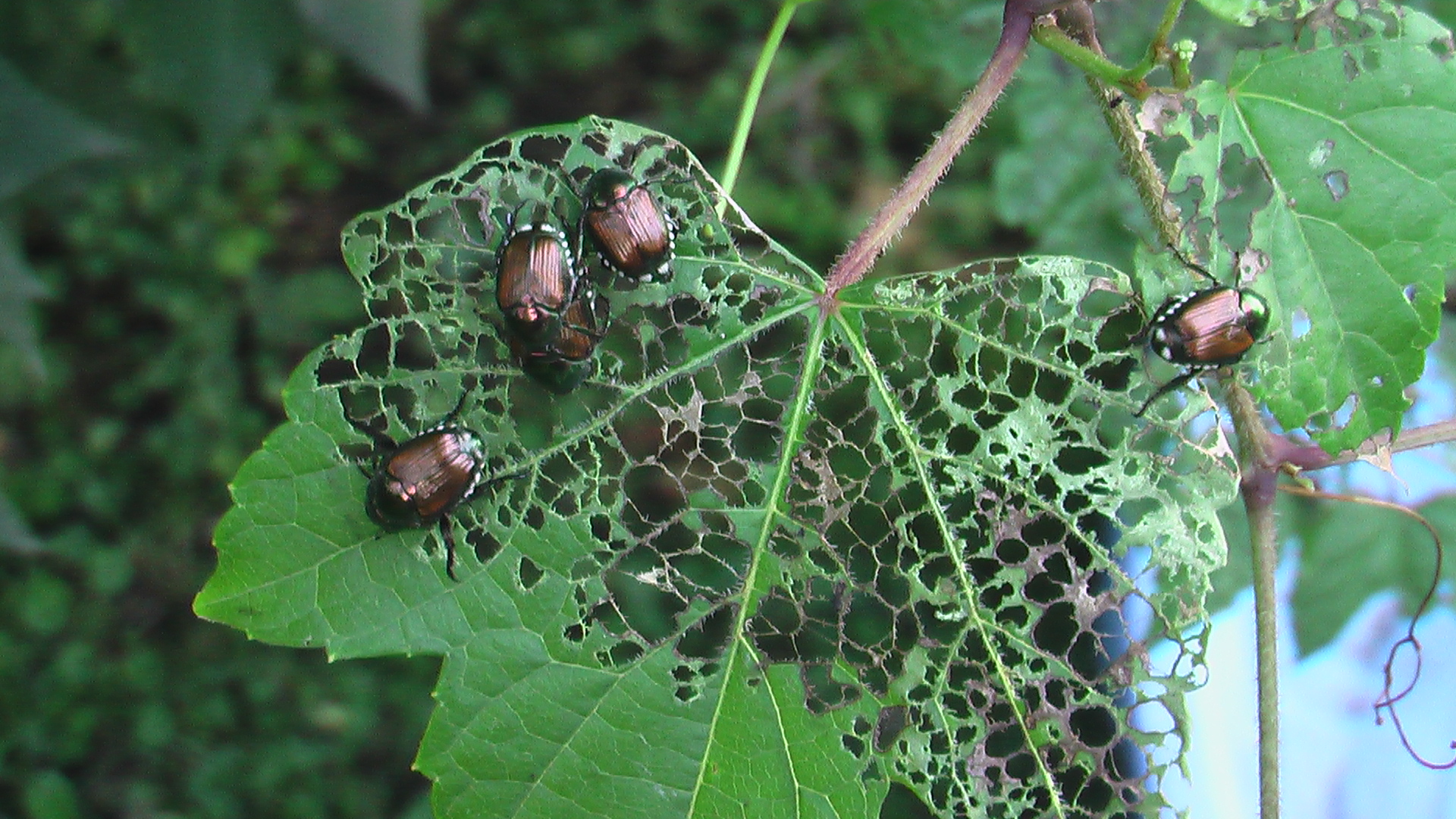
Unfortunately for New Jersey residents, the Japanese beetle causes damage on lawns and plants everywhere. Japanese beetles have been found to feed on over 275 species of plants. This little beetle feeds on the leaves, fruits, and flowers of many plants, including the lindon, Japanese maple, cherry, plum and crabapple trees. Additionally, rose plants are some of their favorite plants to feed on in many landscapes. Luckily, there are plants they do not like to feed on as well; this includes arborvitae, lilac, euonymus, holly and rhododendron. Serious defoliation may occur in heavily infested areas. Not only can beetles defoliate many plants in a short amount of time but their young (grubs) can destroy turf grass as well.
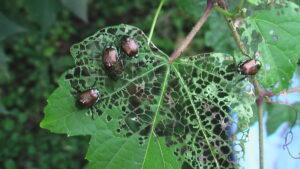
Where did it come from?
The Japanese beetle was found in New Jersey in a nursery in 1916, and prior to this time the pest was only found in Japan where it did not cause substantial damage to plants and turf. New Jersey proved to provide favorable climate with vast amounts of open land and hundreds of plant varieties, making for the perfect location to survive and flourish. Unfortunately for New Jersey, there are no natural predators that would help control the Japanese beetle population here in the United States, explaining the devastating effects the insect has on our turf and plants.
Japanese Beetle Life Cycle
The identification of Japanese beetles is simple. They are ½ inch long, with a metallic green body and brown wing covers with white tufts of hairs on the edges of the wings. Japanese beetles overwinter as a grub in the soil and in the spring, the grubs move up towards the soil surface and feed on grass roots. At this time, the grubs go through their metamorphosis and change into adult beetles. The adult beetles begin to emerge in late June and are active until late September. Most beetles live between three to four weeks and female Japanese beetles lay 40 to 60 eggs over their lifespan.
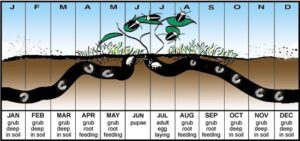
Treatment for Japanese Beetles
One option for treating Japanese beetles is a contact pesticide spray. Pesticide treatments applied while adult beetles are active gives only partial control, even if weekly treatments are applied. These types of treatments are mainly used to stop the vast majority of the beetles present on your plant material from devouring your landscape, but unfortunately provide little residual control when new populations of beetles move in to feed. Foliar spray treatments for Japanese beetles work well for beetles that are actively feeding during the time of treatment, but please be advised that beetles may return and can continue to do further damage to your landscape plants.
The best defense against these pests are preventative treatments for your plants with a systemic soil injection of an insect control product. This application goes into the soil around the root system of the particular plants that beetles like to feed on. The material is then taken up by the plant through its vascular system and then dispersed into the leaves. Beetles must feed on the foliage of the plant to ingest the product before being affected. Therefore, some feeding damage may be present on the plant, but very minimal compared to no control. Treating the beetles during their grub stage is also a good idea for control. Applying a grub preventative to your lawn between June and the end of July helps suppress the grubs and reduce damage to the lawn. If high levels of grubs are present in a small area of lawn, the turf turns brown and peels back like a carpet, exposing the grubs underneath, causing permanent damage to the lawn. You may also find damage to the lawn done by birds, skunks and other vertebrate mammals digging up the ground to find and eat the grubs.
We also recommend that you DO NOT put Japanese beetle traps in the lawn or landscaped areas. Beetle traps often prove to be counterproductive because they attract beetles to your property which increases the amount of feeding damage that can occur. If you have already purchased these bags, we recommend returning them if you can. The damage to your plants could be worse with these traps present than if you had done nothing at all. The less beetles coming onto your property the better off you and your landscape will be.
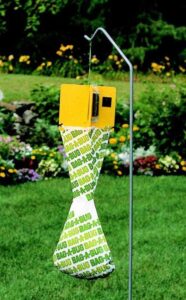
Conclusion
Japanese beetles can become a major problem if left untreated. If you suspect that you may have a Japanese beetle problem in your landscape and are located within our service area, please feel free to contact Fairway Green Inc. with any questions or for a free evaluation and estimate.



